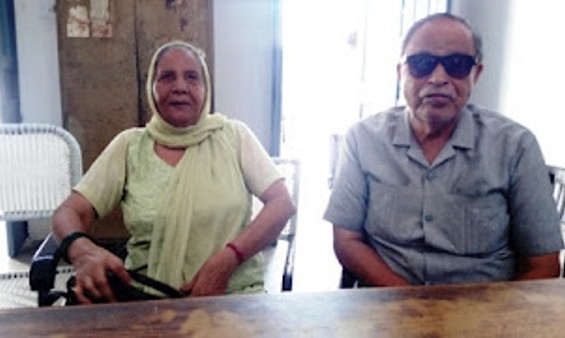Saluting the legendary martyr – Bhagat Singh on 107th Birth Anniversary
During my life time, I have seen that only 23rd March used to be celebrated in Ferozepur a town at Hussainiwala, on Indo-Pak border after his execution on 23 March, 1931 along with his two associates – Rajguru and Sukhdev.
In fact, they were to be hanged on the 24th, but their hanging was moved 11 hours earlier and in an unprecedented decision, hangings were done not in the morning but in the evening.
After their death, the three were cremated behind the jail on the banks of Sutlej by breaking the rear wall of the Jail outside the Ganda Singh Wala Village.
Just a few years back, the sacrifice of Bhagat Singh for the freedom of India, motivated the youths of the area and started celebrating birth anniversary at Ferozepur – the place where the bodies were cremated and at Khat Khat Kalan, the birth place.
Martyr Bhagat Singh was an Indian socialist considered to be one of the most influential revolutionaries of the Indian independence movement. He is often referred toa s Shaheet Bhagat Singh, the word Shaheed meaning ‘martyr’ in number of South Asian and Middle Easter languages.
Martyr Bhagat Singh was an Indian socialist considered to be one of the most influential revolutionaries of the Indian independence movement. He is often referred toa s Shaheet Bhagat Singh, the word Shaheed meaning ‘martyr’ in number of South Asian and Middle Easter languages.
He was born into a Sikh family which had earlier been involved in revolutionary activities against the British Raj, as a teenager, Singh studied European revolutionary movements and was attracted to anarchist and Marxist ideologies.
On April 8, 1929 Bhagat Singh and Batukeshwar Dutt threw bombs in the Central Assembly Hall while the Assembly was in session. The bombs did not hurt anyone. After throwing the bombs, Bhagat Singh and Batukeshwar Dutt, deliberately courted arrest by refusing to run away from the scene. During his trial, Bhagat Singh refused to employ any defense counsel. In jail, he went on hunger strike to protest the inhuman treatment of fellow-political prisoners by jail authorities. On October 7, 1930 Bhagat Singh, Sukh Dev and Raj Guru were awarded death sentence by a special tribunal. Despite great popular pressure and numerous appeals by political leaders of India, Bhagat Singh and his associates were hanged in the early hours of March 23, 1931.
But a controversy has also cropped up over official records not showing Bhagat Singh as a martyr, prompting the government to promise remedial steps even if his name is not in records.
The government is not lacking behind in giving recognition to the martyrs and has held Bhagat Singh in the highest esteem and that it had released his commemorative coins in 2008 at Khatkar Kalan in Nawanshahar, Punjab, the ancestral village of the martyr. The government had even re-named the village as Shaheedd Bhagat Singh Nagar,
Former Prime Minister Manmohan Singh had, asserted that the “fact” that the freedom fighter was a martyr is not dependent on any official record.
Frankly speaking, whatever may be the circumstances, his sacrifice has made niche in our minds and continue to be an example of the possibilities of the potentials, for the generations to come.
Frankly speaking, whatever may be the circumstances, his sacrifice has made niche in our minds and continue to be an example of the possibilities of the potentials, for the generations to come.
Bhagat Singh’s supporters believe that their hero has never got his due over all these years, thanks to the iconic names of great leaders like Mahatma Gandhi, Jawaharlal Nehru and Sardar Patel, which completely dominated history lessons.
He definitely needs to be made a part of the history text books at the school or college level highlighting the revolutionary efforts of the youth icon in the freedom struggle, who laid down his life for his countrymen, setting an example of putting one’s self before one’s nation.
He definitely needs to be made a part of the history text books at the school or college level highlighting the revolutionary efforts of the youth icon in the freedom struggle, who laid down his life for his countrymen, setting an example of putting one’s self before one’s nation.




